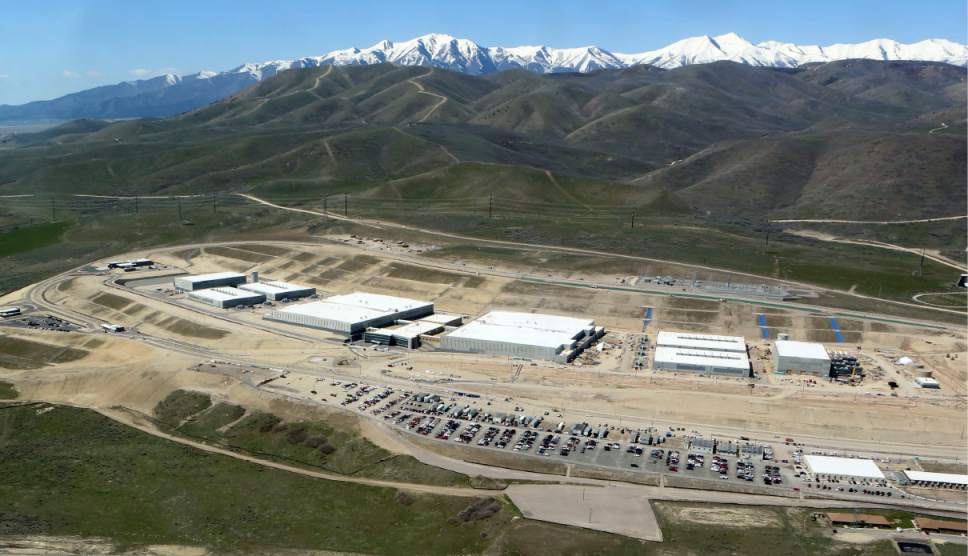This is an archived article that was published on sltrib.com in 2017, and information in the article may be outdated. It is provided only for personal research purposes and may not be reprinted.
Senior current and former National Security Agency officials have denied claims that the agency conducted "blanket" surveillance of Salt Lake City-area residents during the 2002 Winter Olympics.
In sworn declarations filed in U.S. District Court on Monday, current NSA Director of Operations Wayne Murphy and former NSA Director Michael Hayden rejected allegations made in a 2015 lawsuit against the agency. The lawsuit claims violations of privacy over an alleged dragnet government surveillance program during the Olympics, which had followed significant security concerns raised in the wake of 9/11.
NSA attorneys in a related filing this week request Judge Robert Shelby dismiss the case and issue a summary judgment. Shelby rejected an NSA attempt in January to have the case dismissed, saying the six plaintiffs — who all lived or worked in Salt Lake City during the Games — made legally sufficient allegations that the agency had conducted a widespread, warrantless surveillance program during the event.
In the sworn declarations, however, Murphy and Hayden argued no such thing occurred.
"Neither the PSP (President's Surveillance Program), nor any other NSA intelligence-gathering activity, at any time has involved indiscriminate 'blanket' surveillance in Salt Lake City or the vicinity of the 2002 Winter Olympic venues, whether during the 2002 Winter Olympic Games or otherwise," Murphy wrote.
He noted that NSA collection of communications did and does continue to exist but was "targeted at one-end foreign communications where a communicant was reasonably believed to be a member or agent of al-Qaeda or another international terrorist organization."
Murphy noted he wouldn't reveal more specific details about NSA surveillance techniques including the PSP program, which expired in 2007, because it remains classified in order "to protect sensitive intelligence sources and methods."
Even making a decision to deny the allegations of blanket surveillance was a decision "not taken lightly" within the NSA, Murphy said. Usually, he said, the NSA would neither "confirm nor deny" such allegations regarding intelligence gathering.
"Indeed, the very existence of the PSP was a closely guarded state secret for over four years, until a wave of unauthorized public disclosures about the (terrorist surveillance program) were reported by the media in December 2005," he wrote.
Murphy in his declaration also said it was untrue that the NSA had stored the contents of communications, or metadata, obtained as part of any blanket surveillance.
Hayden added that it was untrue that there was both blanket surveillance of email, text messages, and metadata of phone calls during the Olympics, and he denied that he was the one who "personally" caused the NSA to engage in such a practice.
"All of these allegations are false," Hayden said.
The plaintiffs are represented by former Salt Lake City Mayor Rocky Anderson. Anderson in 2015 told The Salt Lake Tribune that the Olympics surveillance "was the most immense, clearly illegal and unconstitutional, indiscriminate wholesale surveillance of the content of communications of people in this country by our government in our nation's history."
Anderson could not immediately be reached for comment Saturday.
The Wall Street Journal, citing unnamed sources, was the first to report in 2013 that the NSA and FBI "monitored the content of all email and text communications in the Salt Lake City area," around the 2002 Games.
Twitter: @lramseth



